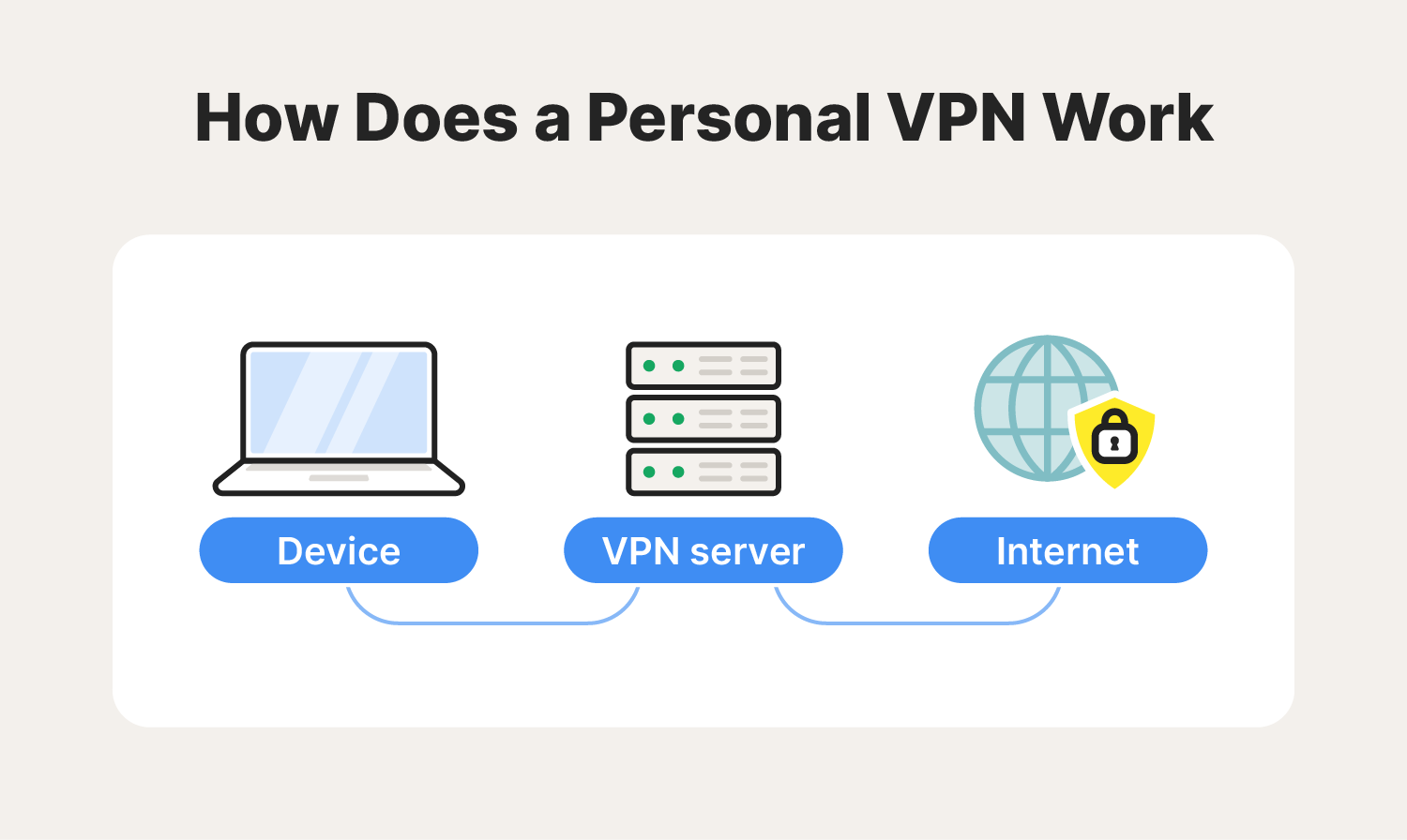A VPN is a Virtual Private Network. It helps keep your internet activity private and secure. This article will explain what a VPN is, how it works, and why you might need one.
Understanding VPNs
Let’s break down the term VPN. The word “Virtual” means it exists online. “Private” means it keeps your information safe. “Network” is a group of devices connected together. So, a VPN creates a private connection over the internet.
How Does a VPN Work?
A VPN works by connecting your device to a secure server. Here is how it happens:
- Your device connects to the VPN.
- The VPN sends your data to a server.
- The server sends back the information you requested.
This process helps keep your data hidden. It makes it hard for others to see what you are doing online.
Why Use a VPN?
There are many reasons to use a VPN. Here are some of the most common:
- Privacy: A VPN hides your IP address. This helps keep your identity safe.
- Security: A VPN encrypts your data. This means it scrambles your information so others cannot read it.
- Access: A VPN allows you to access blocked websites. Some websites may not be available in your country.
- Safe Public Wi-Fi: A VPN protects you when using public Wi-Fi. Public networks can be risky without a VPN.
VPN and Your Privacy
When you use the internet, many websites track your activity. They may collect your data. This can lead to unwanted ads. A VPN helps stop this by masking your IP address. Your IP address is like your home address on the internet. It tells websites where you are. When you use a VPN, your real IP address is hidden.
VPN Security Features
Most VPNs have strong security features. Here are a few:
- Encryption: This is the process of scrambling your data. It keeps your information safe from hackers.
- Killing Switch: This feature stops your internet if the VPN fails. It prevents any data from leaking out.
- DNS Leak Protection: This feature keeps your DNS requests private. It prevents third parties from seeing your online activity.
Choosing a VPN
Choosing a VPN can be confusing. Here are some tips:
- Look for a VPN with good reviews.
- Check if it has a money-back guarantee.
- See if it offers customer support.
- Make sure it works on your device.

Types of VPNs
There are different types of VPNs. Here are the main ones:
- Remote Access VPN: This type connects individual users to a secure network.
- Site-to-Site VPN: This connects entire networks. It is often used by businesses.
- SSL VPN: This type uses a web browser to connect. It is easy to use and set up.
VPNs and Streaming
Many people use VPNs for streaming content. Some streaming services block certain content based on your location. A VPN helps you change your virtual location. This allows you to access content from other countries.

Limitations of VPNs
While VPNs are useful, they have some limitations. Here are a few:
- Speed: Using a VPN may slow down your internet speed.
- Cost: Most good VPNs require a subscription.
- Not All Are Safe: Some free VPNs may not protect your data.
Frequently Asked Questions
What Is A Vpn Used For?
A VPN is used to protect your online privacy and security. It helps keep your internet activities private.
How Does A Vpn Work?
A VPN creates a secure tunnel between your device and the internet. It encrypts your data to keep it safe.
Is A Vpn Safe To Use?
Yes, a VPN is generally safe. It helps protect your information from hackers and snoopers.
Can A Vpn Hide My Ip Address?
Yes, a VPN hides your IP address. This helps keep your location private and secure.
Conclusion
A VPN is a valuable tool for online safety. It keeps your data private and helps you access blocked content. Understanding how a VPN works is important. Choose the right one for your needs. By using a VPN, you can enjoy a safer online experience.
Frequently Asked Questions (FAQs)
1. Is Using A Vpn Legal?
Yes, using a VPN is legal in most countries.
2. Can I Use A Vpn On My Phone?
Yes, many VPNs work on phones and tablets.
3. Will A Vpn Protect Me From Viruses?
No, a VPN does not protect against viruses. Use antivirus software for that.
4. Can A Vpn Improve My Internet Speed?
Sometimes, it can. But it may also slow down your connection.
5. How Much Does A Vpn Cost?
Prices vary. Some cost around $5 to $15 per month.
In summary, a VPN is a great way to protect your online activity. It is important to choose a reliable one. Enjoy safer browsing with a VPN.
